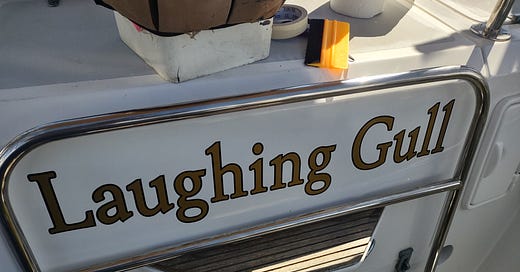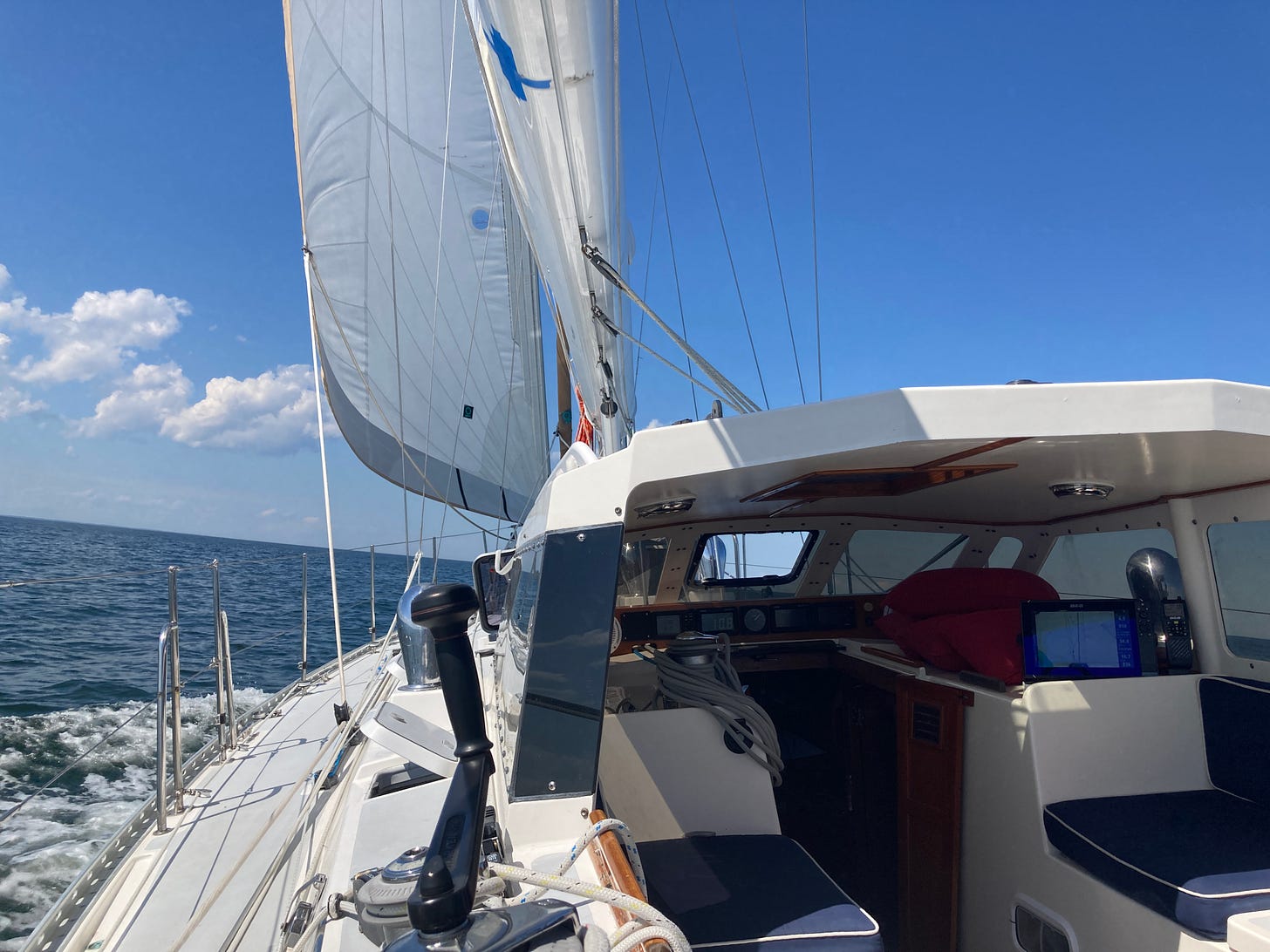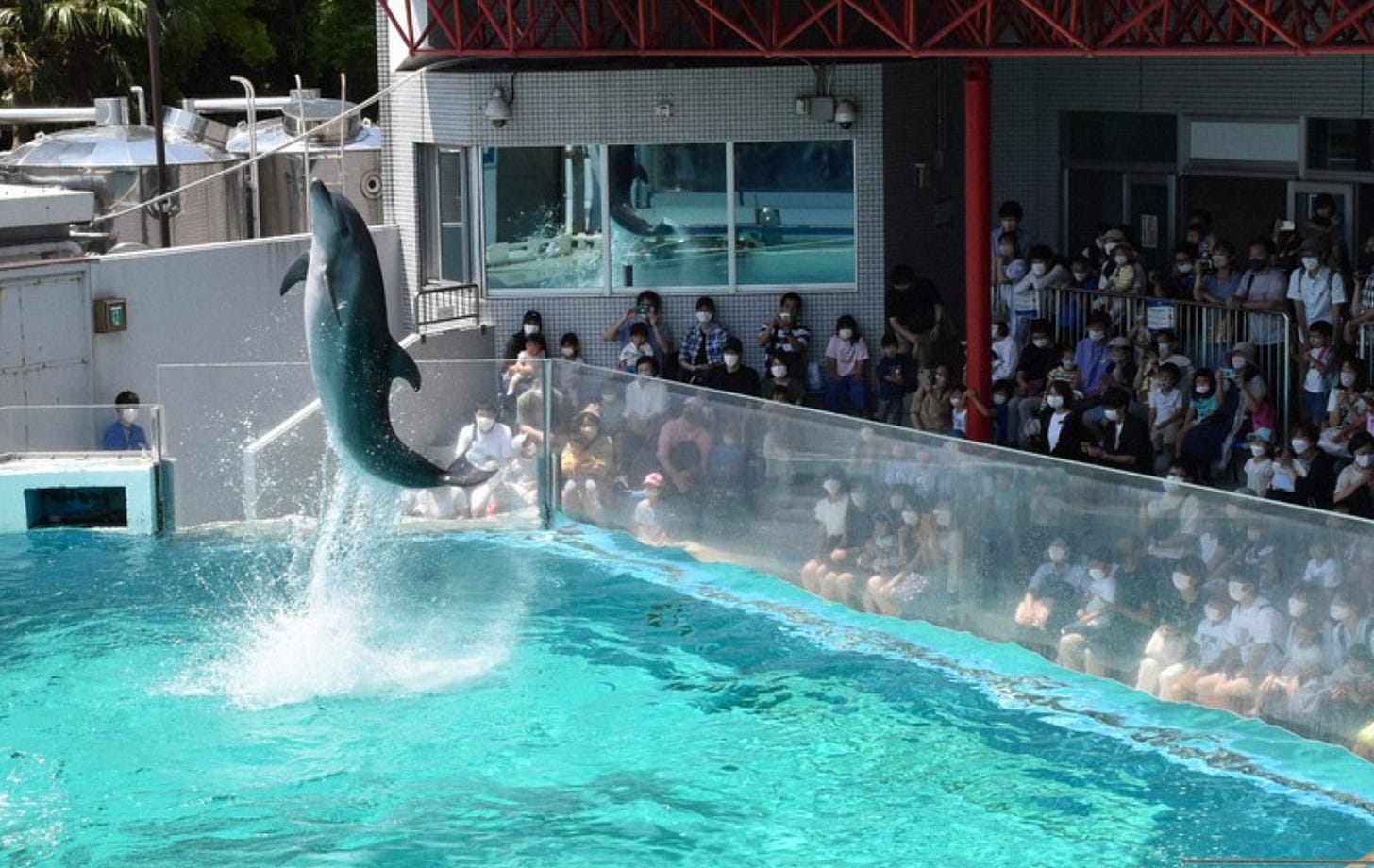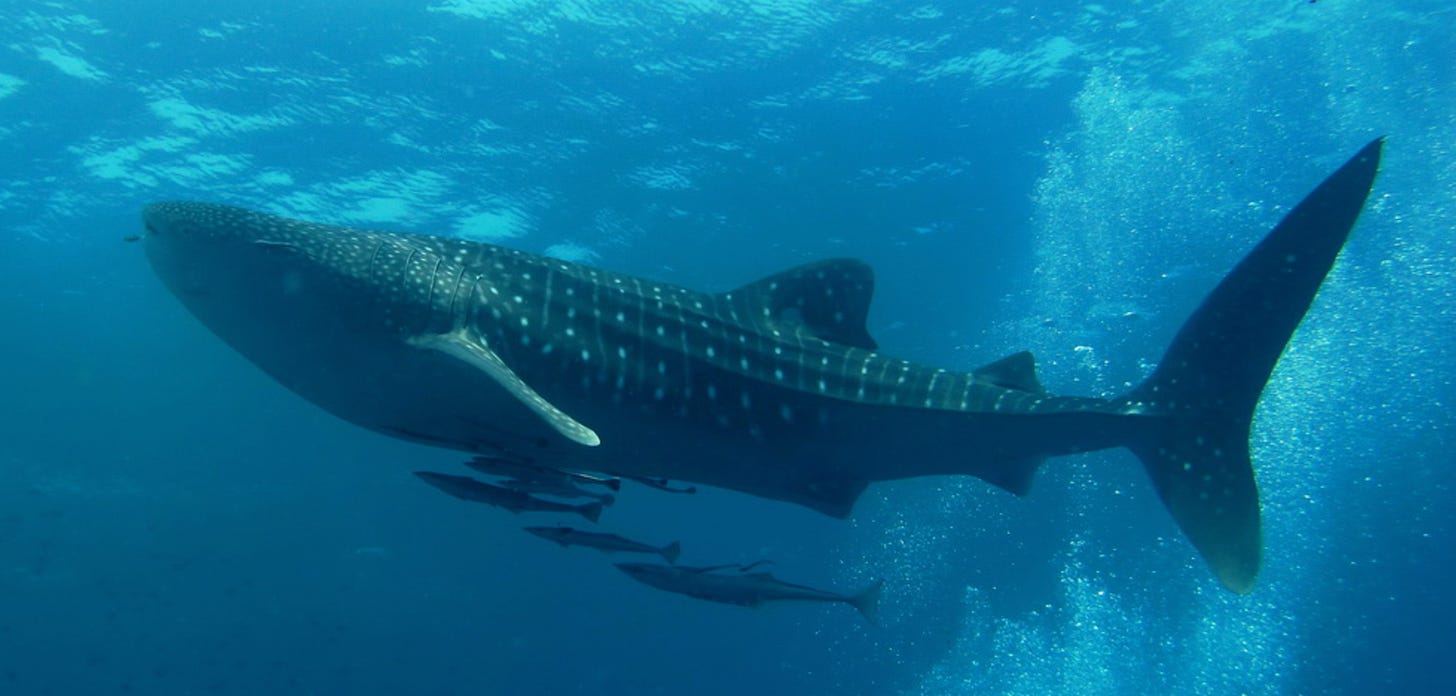This week Renegade officially became Laughing Gull. Many sailors believe it is bad luck to change the name of a sailboat. I am not very superstitious. In any case, to ward off any resulting bad luck you can appeal to the gods to forget the old name (done), and re-christen with alcohol (fun). If you really, really want to be extra-cautious you can somehow induce a virgin urinate over the bow (awkward).
For some reason, the application of the new name to the transom feels significant, as if the boat’s memory or mileage counter has been reset and it is ready to begin anew.
Yet, so far, to my growing shame, Laughing Gull mostly sits at a dock on the Chesapeake Bay next to a rowdy Dock Bar (which unfortunately has not a single menu item that is vegetarian or vegan apart from beer), awaiting…something. This pains me. I am letting the newly christened Laughing Gull down because I don’t yet know how to let her fly. The whole idea of an Able Apogee 50 is to voyage beyond the Bay. But dropping the lines, as every sailor knows, isn’t always that easy. So far, I have had just a brief, tantalizing taste of the open ocean on the delivery north from Georgia.
I knew this would be the case even as I started searching for a boat. Dock lines get all snarled up in the complexities of ordinary life. And serious expeditions will have to wait until my son heads off to college next year. I knew I would have to wait. Still, every time I see Laughing Gull at the dock she looks sad and captive (and, of course, I am against captivity).
“Men and ships rot in port” it is said. I am trying my best not to rot, and trying my best not to let Laughing Gull rot (the Chesapeake corollary is that ships in port grow foul bottoms—and I am less successful at preventing this). I mostly continue to try and do what I did with Moondust: seize opportunities—as weather and obligations allow—to spend a few days and nights sailing about and then floating somewhere quiet at night. Or putter around onboard, submerging myself in the Zen Of Boat Maintenance, which for me is deeply rewarding. Sorry, LG. Patience is required.
I say mostly, because one thing an Able Apogee 50 can easily do (which a Beneteau 36.7 could not easily do), is head down to Florida for the winter and serve as a warm-weather waterside condo which also—crucially—has the capability to cruise around a bit when time and tide allow. Christmas in the Bahamas can cure just about any ailment of the soul.
So that is what I am working on: finding an affordable and available slip from mid-November. Which isn’t easy in a world turned upside down by a pandemic, inflation and a massive surge in boating demand. But I am hoping that the city and marinas of St. Augustine will accommodate. Or perhaps New Smyrna (though it sounds decidedly less glamorous). We’ll see. I’ve always wanted to become a Florida Man.
In Other News:
To Free A Right Whale: Sometimes, every once in a while, something good happens. In this case, and rescuers managed to save a whale called Thumper from a slow, painful death entangled in fishing line.
This Is Good Too! An aquarium in Tokyo decides it’s time for the dolphin show to come to an end. Yes, it was a business decision that was made because the shows were no longer profitable (and not because the owners have seen the light on dolphin captivity). No, the dolphins will probably not go to a sanctuary and will likely be sold to another facility. But still. Every show that ends is the arc of the universe bending ever so slightly toward justice.
This Is Bad: It is not just great whales who suffer and die from ship strikes. Whale sharks are being decimated too, and their populations have declined by more than 60%, a decline that has long been hard to explain. Researchers have now identified a major suspect:
A study in the journal Proceedings of the National Academy of Sciences reveals that cargo ships are likely a leading cause of whale shark deaths. Often, where you find high densities of these endangered fish, you also find shipping traffic, the authors found, and ships are already known to strike and kill these animals.
Our lives as consumers connect us to this seemingly far-away problem. More than 80 percent of all internationally traded products are carried by cargo vessels, such as TVs and cookware and whatever device you’re reading on now. And the world’s marine fleet is rapidly multiplying, growing from 1,771 large vessels in 1995 to more than 94,000 in 2020. The ocean is now full of highways packed with ships.
Remember: It’s never too late to stop buying so much sh*t.
If you liked this post from Sailing Into The Anthropocene, why not subscribe here (free!), and/or hit that share button below? You can also find me on Instagram and Twitter.








